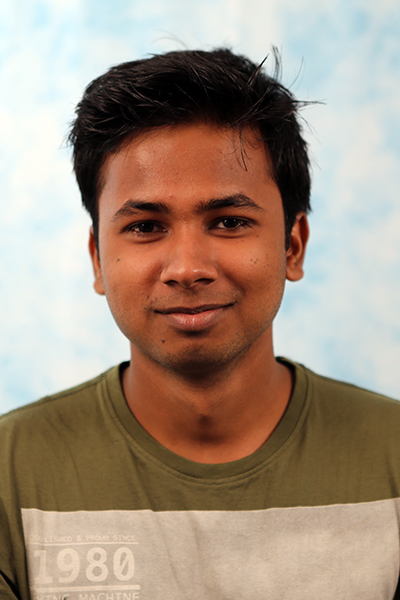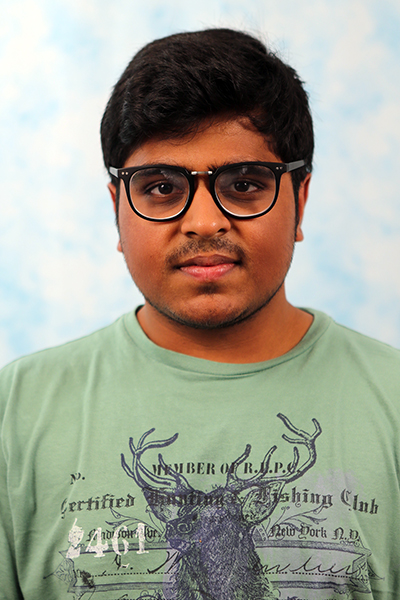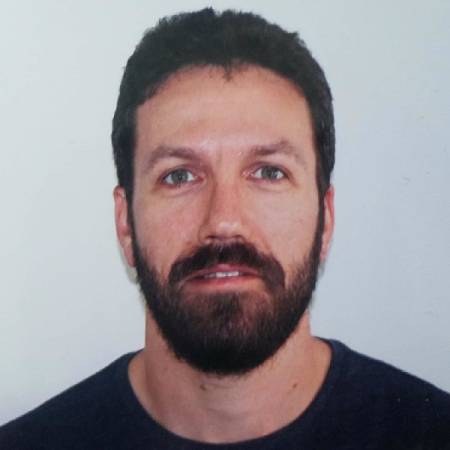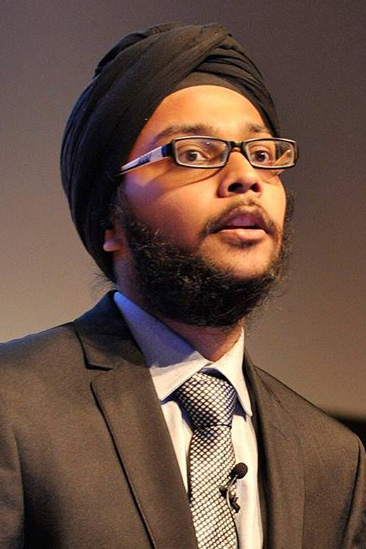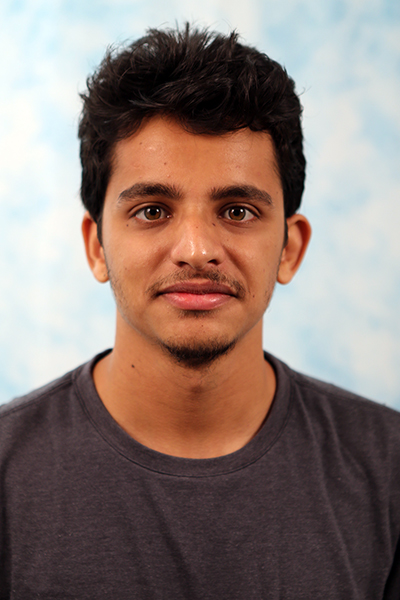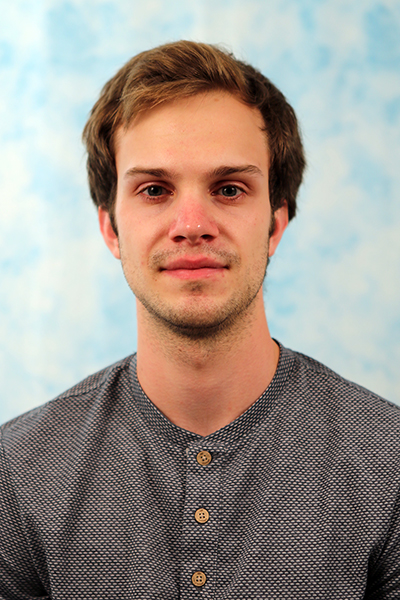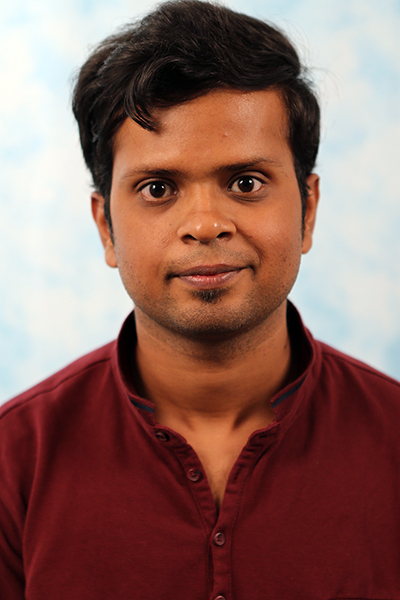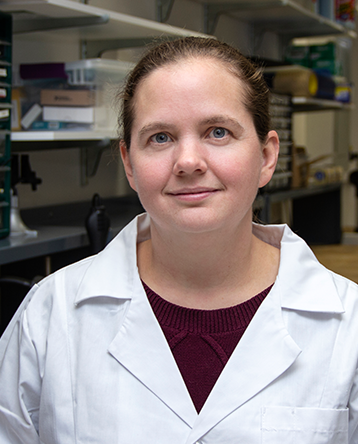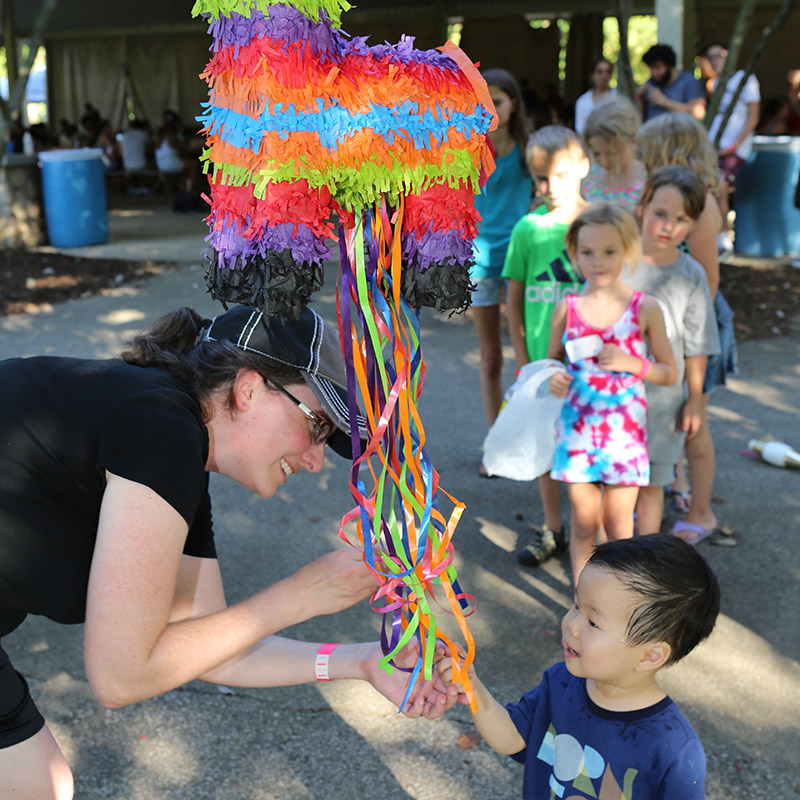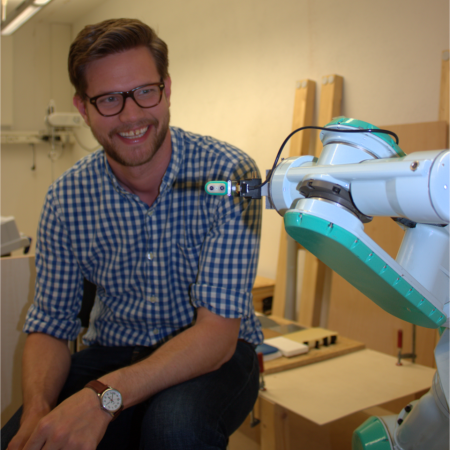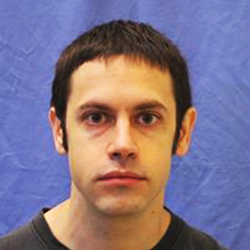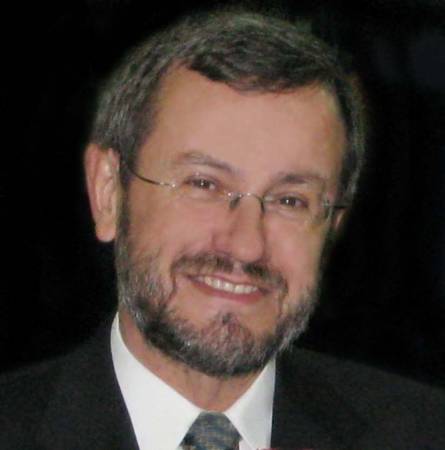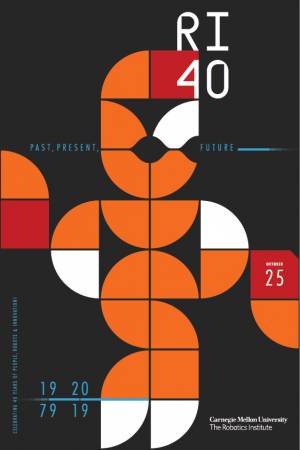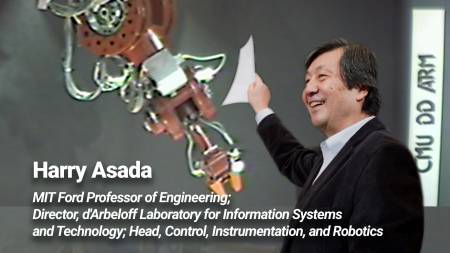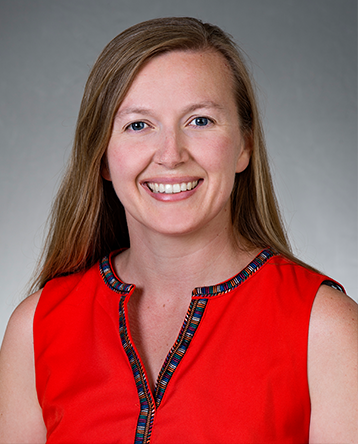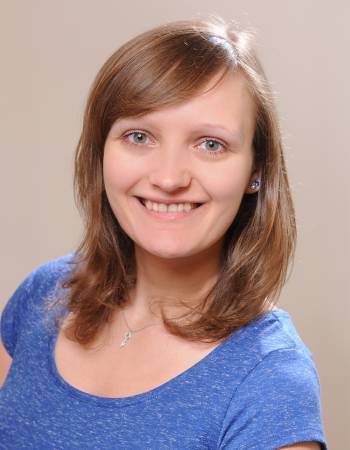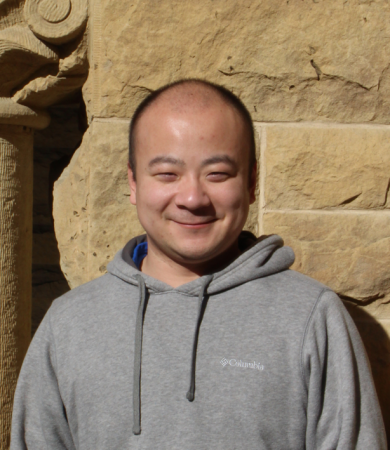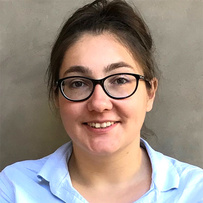Carnegie Mellon University
MSR Thesis Talk – Sumit Kumar
Title: Spatiotemporal Modeling using Recurrent Neural Processes Abstract: Spatiotemporal processes, such as temperature in an area, motion of a vehicle, etc., depend on the spatial features of the underlying phenomena as well as time. Developing models that can estimate both mean and uncertainty associated with the prediction is important for building robust systems capable of [...]
Sudharshan Suresh – MSR Thesis Talk
Title: Localization and Active Exploration in Indoor Underwater Environments Abstract: Autonomous underwater vehicles have the potential to inspect and map indoor underwater environments, such as spent nuclear fuel pools and ship ballast tanks. Towards this, the thesis makes contributions in the domains of visual localization and active SLAM for underwater environments. In the first work, [...]
Carnegie Mellon University
Cong Li – MSR Thesis Talk
Title: Multi-Sensor Fusion for Robust Simultaneous Localization and Mapping Abstract: Simultaneous Localization and Mapping (SLAM) consists of the estimation of the state of the robot, and the reconstruction of the surrounding environment simultaneously. Over the last few decades, numerous state-of-the-art SLAM algorithms are proposed and frequently utilized in the robotics community. However, a SLAM algorithm [...]
Carnegie Mellon University
MSR Thesis Talk – Naman Gupta
Title: State Estimation for Legged Robots using Proprioceptive Sensors Abstract: Mobile robots need good estimates of their state to perform closed-loop control in structured and unstructured environments. A number of existing algorithms rely on data fusion from multiple sensors to compute these estimates. This work focuses on state estimation using sensors which only measure [...]
Exploiting Deviations from Ideal Visual Recurrence
Abstract: Visual repetitions are abundant in our surrounding physical world: small image patches tend to reoccur within a natural image, and across different rescaled versions thereof. Similarly, semantic repetitions appear naturally inside an object class within image datasets, as a result of different views and scales of the same object. We studied deviations from these [...]
Carnegie Mellon University
MSR Thesis Talk – Harjatin Baweja
Title: Leveraging Computer Vision and Reinforcement Learning for contact and non-contact based plant phenotyping. Abstract: Effective plant breeding requires scientists to find correspondences between genetic markers and desirable physical traits (phenotypes) of the genotype. Robotics can aid the acceleration of breeding pipeline by facilitating high throughput plant phenotyping. In this thesis we propose [...]
Carnegie Mellon University
MSR Thesis Talk – Suhit Kodgule
Title: Active Sampling for Planetary Rover Exploration Abstract: Planetary Robotics research has expanded beyond simply developing robust navigation strategies for rovers to providing them with the capability of performing intelligent actions so as to develop a better interpretation and understanding of the environment. This will become essential in the future, when rovers explore regions far [...]
Attending to Pixels, Embedding Pixels, Predicting Pixels
Abstract: Nowadays splashy applications heavily depend on meticulously annotated datasets, data-driven and learning-based methods, among which pixel labeling plays an important role yet often lacks interpretability. In this talk, I will discuss how we deal with pixels with better interpretability. Firstly, I'll introduce the pixel embedding framework that allows for clustering pixels into discrete groups [...]
Carnegie Mellon University
Matthew Collins – MSR Thesis Talk
Title: Efficient Planning for High-Speed MAV Flight in Unknown Environments Using Sparse Topological Graphs Abstract: Safe high-speed autonomous navigation for MAVs in unknown environments requires fast planning to enable the robot to adapt and react quickly to incoming information about obstacles within the world. Furthermore, when operating in environments not known a priori, the robot [...]
Carnegie Mellon University
MSR Thesis Talk – Siva Chaitanya Mynepalli
Title: Recognizing Tiny Faces Abstract: Objects are naturally captured over a continuous range of distances, causing dramatic changes in appearance, especially at low resolutions. Recognizing such small objects at range is an open challenge in object recognition. In this paper, we explore solutions to this problem by tackling the fine-grained task of face recognition. State-of-the-art embeddings [...]
Carnegie Mellon University
Data Centric Robot Learning
Abstract: While robotics has made tremendous progress over the last few decades, most success stories are still limited to carefully engineered and precisely modeled environments. Getting these robots to work in the complex and diverse world that we live in has proven to be a difficult challenge. Interestingly, one of the most significant successes in [...]
Automatically Supervised Learning: Two more steps on a long journey
Abstract: I will talk about two recent pieces of work that attempt to move towards learning with less reliance on labeled data. In the first, part, I will talk about how the surrogate task of predicting the motion of objects can induce complex representations in neural networks without any labeled data. In the second part of [...]
Carnegie Mellon University
Exploiting Point Motion, Shape Deformation, and Semantic Priors for Dynamic 3D Reconstruction in the Wild
Abstract: With the advent of affordable and high-quality smartphone cameras, any significant events will be massively captured both actively and passively from multiple perspectives. This opens up exciting opportunities for low-cost high-end VFX effects and large scale media analytics. However, automatically organizing large scale visual data and creating a comprehensive 3D scene model is still [...]
Carnegie Mellon University
Learning and Reasoning with Visual Correspondence in Time
Abstract: There is a famous tale in computer vision: Once, a graduate student asked the famous computer vision scientist Takeo Kanade: "What are the three most important problems in computer vision?" Takeo replied: "Correspondence, correspondence, correspondence!" Indeed, even for the most commonly applied Convolutional Neural Networks (ConvNets), they are internally learning representations that lead to [...]
Geometric Deep Learning for Perceiving and Modeling Humans
Abstract: Perceiving and modeling shape and appearance of the human body from single images is a severely under-constrained problem that not only requires large volumes of data, but also prior knowledge. In this talk I will present recent solutions on how deep learning can leverage on geometric reasoning to address tasks like 3D estimation of [...]
Carnegie Mellon University
Forecasting and Controlling Behavior by Learning from Visual Data
Abstract: Achieving a precise predictive understanding of the future is difficult, yet widely studied in the natural sciences. Significant research activity has been dedicated to building testable models of cause and effect. From a certain view, a perfect predictive model of the universe is the “holy grail”; the ultimate goal of science. If we had [...]
Human-Level Learning of Driving Primitives through Bayesian Nonparametric Statistics
Abstract: Understanding and imitating human driver behavior has benefited for autonomous driving in terms of perception, control, and decision-making. However, the complexity of multi-vehicle interaction behavior is far messier than human beings can cope with because of the limited prior knowledge and capability of dealing with high-dimensional and large-scale sequential data. In this talk, I [...]
Carnegie Mellon University
Town Hall with RI Director and RI Graduate Students
Dr. Srinivasa Narasimhan, the Interim Director of The Robotics Institute, would like to meet all of RI’s graduate students. Please join him for a Town Hall meeting at 1pm in Rashid Auditorium on Friday Aug 30!
Formalizing Teamwork in Human-Robot Interaction
Abstract: Robots out in the world today work for people but not with people. Before robots can work closely with ordinary people as part of a human-robot team in a home or office setting, robots need the ability to acquire a new mix of functional and social skills. Working with people requires a shared understanding [...]
Knowledge Transfer Graph for Deep Collaborative Learning
Abstract: In this talk I will present our latest research about knowledge transfer graph for Deep Collaborative Learning (DCL), which is a method that incorporates Knowledge Distillation and Deep Mutual Learning. DCL is represented by a directional graph where each model is represented by a node, and the propagation of knowledge from the source node to the [...]
AI in Space – From Earth Orbit to Mars and Beyond!
Abstract: Artificial Intelligence is playing an increasing role in our everyday lives and the business marketplace. This trend extends to the space sector, where AI has already shown considerable success and has the potential to revolutionize almost every aspect of space exploration. We first highlight a number of success stories of the tremendous impact of [...]
Microsystems-inspired robotics
Abstract: The ability to manufacture micro-scale sensors and actuators has inspired the robotics community for over 30 years. There have been huge success stories; MEMS inertial sensors have enabled an entire market of low-cost, small UAVs. However, the promise of ant-scale robots has largely failed. Ants can move high speeds on surfaces from picnic tables [...]
Robotics Institute Picnic
Carnegie Mellon University
Self-Supervised Learning on Mobile Robots Using Acoustics, Vibration, and Visual Models to Build Rich Semantic Terrain Maps
Abstract: Humans and robots would benefit from having rich semantic maps of the terrain in which they operate. Mobile robots equipped with sensors and perception software could build such maps as they navigate through a new environment. This information could then be used by humans or robots for better localization and path planning, as well [...]
Carnegie Mellon University
Resource-Constrained State Estimation with Multi-Modal Sensing
Abstract: Accurate and reliable state estimation is essential for safe mobile robot operation in real-world environments because ego-motion estimates are required by many critical autonomy functions such as control, planning, and mapping. Computing accurate state estimates depends on the physical characteristics of the environment, the selection of suitable sensors to capture that information, and the [...]
Robotic Grippers for Planetary Applications
Abstract: The previous generation of NASA missions to the outer solar system discovered salt water oceans on Europa and Enceladus, each with more liquid water than Earth – compelling targets to look for extraterrestrial life. Closer to home, JAXA and NASA have imaged sky-light entrances to lava tube caves on the Moon more than 100 [...]
Some New Designs of Convolutional and Recurrent Networks
Abstract: Convolutional networks (CNNs) and recurrent networks have driven the great engineering success of deep learning in recent years. However, as academics, we still wonder whether they are indeed the ultimate models of choice. Especially, CNNs seem unable to characterize predictive uncertainty, and they are highly dependent on small filters on small, rectangular neighborhoods. On [...]
Improving Multi-fingered Robot Manipulation by Unifying Learning and Planning
Abstract: Multi-fingered hands offer autonomous robots increased dexterity, versatility, and stability over simple two-fingered grippers. Naturally, this increased ability comes with increased complexity in planning and executing manipulation actions. As such, I propose combining model-based planning with learned components to improve over purely data-driven or purely-model based approaches to manipulation. This talk examines multi-fingered autonomous [...]
Language and Interaction in Minecraft
Abstract: I will discuss a research program aimed at building a Minecraft assistant, in order to facilitate the study of agents that can complete tasks specified by dialogue, and eventually, to learn from dialogue interactions. I will describe the tools and platform we have built allowing players to interact with the agents and to record those interactions, and [...]
Carnegie Mellon University
Scaling Up Deep Learning with Model and Algorithm Awareness
Abstract: In recent years, the pace of innovations in the fields of deep learning has accelerated. To cope with the sheer computational complexity of training large ML models on large datasets, researchers in the systems and ML communities have created software systems that parallelize training algorithms over multiple CPUs or GPUs (multi-device parallelism), or even [...]
Design, Modeling and Control of a Robot Bat: From Bio-inspiration to Engineering Solutions
Abstract: In this talk, I will describe our recent work building a biologically-inspired bat robot. Bats have a complex skeletal morphology, with both ball-and-socket and revolute joints that interconnect the bones and muscles to create a musculoskeletal system with over 40 degrees of freedom, some of which are passive. Replicating this biological system in a [...]
Attentive Human Action Recognition
Abstract: Enabling computers to recognize human actions in video has the potential to revolutionize many areas that benefit society such as clinical diagnosis, human-computer interaction, and social robotics. Human action recognition, however, is tremendously challenging for computers due to the subtlety of human actions and the complexity of video data. Critical to the success of [...]
Carnegie Mellon University
Underwater Localization and Mapping with Imaging Sonar
Abstract: Acoustic imaging sonars have been used for a variety of tasks intended to increase the autonomous capabilities of underwater vehicles. Among the most critical tasks of any autonomous vehicle are localization and mapping, which are the focus of this work. The difficulties presented by the imaging sonar sensor have led many previous attempts at [...]
Deep Learning for Robotics
Abstract: Programming robots remains notoriously difficult. Equipping robots with the ability to learn would by-pass the need for what otherwise often ends up being time-consuming task specific programming. This talk will describe recent progress in deep reinforcement learning (robots learning through their own trial and error), in apprenticeship learning (robots learning from observing people), and [...]
Temporal Modeling and Data Synthesis for Visual Understanding
Abstract: In this talk, I will present two recent pieces of work on leveraging temporal information and synthetic data to enhance video and image understanding. In the first part, I will introduce a progressive learning framework, Spatio-TEmporalProgressive (STEP), for action detection in videos. STEP is able to more effectively make use of longer temporal information, [...]
Multiple Drone Vision and Cinematography
Abstract: The aim of drone cinematography is to develop innovative intelligent single- and multiple-drone platforms for media production to cover outdoor events (e.g., sports) that are typically distributed over large expanses, ranging, for example, from a stadium to an entire city. The drone or drone team, to be managed by the production director and his/her [...]
Modeling, Design, and Analysis for Intelligent Vehicles: Intersection Management, Security-Aware Design, and Automotive Design Automation
Abstract: Advanced Driver Assistance Systems (ADAS), autonomous functions, and connected applications bring a revolution to automotive systems and software. In this talk, several research topics in the domain of automotive systems and software will be introduced: (1) graph-based modeling, scheduling, and verification for intersection management, (2) security-aware design and analysis considering timing, game theory, and [...]
Carnegie Mellon University
Open-world Object Detection and Tracking
Abstract: Computer vision today excels at recognition in narrow slices of the real world. Our systems seem to accurately detect cats, cars, or chairs, but largely ignore the vast diversity of objects in the world that are absent from our training datasets. Perception in the open world, however, requires detecting and tracking any object, regardless [...]
Carnegie Mellon University
Personalized and weakly supervised learning for Parkinson’s disease symptom detection
Abstract: Parkinson's Disease (PD) is a neurodegenerative disorder that affects approximately one million Americans. Medications exist to manage the symptoms, but doctors must periodically adjust dosage level and frequency as a patient's disease progresses. These adjustments are typically based on observations made during short clinic visits, which provide an incomplete picture of a patient's daily [...]
VR facial animation via multiview image translation
Abstract: A key promise of Virtual Reality (VR) is the possibility of remote social interaction that is more immersive than any prior telecommunication media. However, existing social VR experiences are mediated by inauthentic digital representations of the user (i.e., stylized avatars). These stylized representations have limited the adoption of social VR applications in precisely those [...]
Neural Volumes: Learning Dynamic Renderable Volumes from Images
Abstract: Modeling and rendering of dynamic scenes is challenging, as natural scenes often contain complex phenomena such as thin structures, evolving topology, translucency, scattering, occlusion, and biological motion. Mesh-based reconstruction and tracking often fail in these cases, and other approaches (e.g., light field video) typically rely on constrained viewing conditions, which limit interactivity. We [...]
RI40: Past, Present, and Future
Please plan to join us on Friday, October 25, 2019 as we celebrate 40 years of people, robots, and innovation! 40 years ago Carnegie Mellon University’s Robotics Institute opened its doors with the dream of ushering in a new age of thinking robots. During the ensuing decades, we have experienced many research successes in intelligent [...]
RI40 Seminar: From Direct-Drive to SuperLimb Bionics
In 1980-81 the first Direct-Drive robot was developed at the CMU Robotics Institute. After almost 40 years, Direct-Drive has a renewed interest in the leg robotics community. Robotic legs powered by direct-drive or low gear-reduction motors can better interact with the ground and absorb impacts. In this seminar I will talk about robot design in [...]
Tartan AUV: A Dive into Carnegie Mellon’s RoboSub Team
Abstract: Founded last year, Tartan AUV is Carnegie Mellon’s undergraduate underwater robotics team which competes annually in the RoboSub competition. RoboSub teams must design, build, and test autonomous underwater vehicles that compete each August to complete tasks related to underwater navigation, object detection and manipulation, and acoustic beacon localization. In this talk we will provide [...]
DNA and gammaPNA in programmable nanomaterials for sensing, robotics and manufacturing
Abstract: When programmable nanomaterials are used in conjunction with rapid microfabrication techniques like two photon polymerization, it becomes possible to rapidly prototype microstructures with nanoscale components. In this research presentation I introduce DNA nanotechnology using a commonly used simple nanotube motif, and I will illustrate how nucleic acid nanotubes can be used in sensing, robotics [...]
Towards Lightweight Real-time Hand Reconstruction in Challenging
Abstract: Humans naturally use their hands to interact and communicate with their surroundings. Reconstructing these complex and dexterous hand interactions enables sign-language recognition and translation, better assistive robots, and more immersive human-computer interaction (e.g. for AR and VR). To make hand reconstruction usable for the aforementioned applications and to a wide set of users, the [...]
Soft Robotics challenges: Design, Fabrication, Control, and Motion Planning
Abstract: More and more robots of the future will be soft. A soft body can absorb impact forces from collisions with obstacles, making robots suitable for unpredictable environments and safe for human-robot interaction. However, widespread application of soft robotics in daily life, business, and consumer products have not yet been achieved, because established robotic technologies, [...]
Hybrid Methods for the Integration of Heterogeneous Multimodal Biomedical Data
Abstract: The prevalence of smartphones and wearable devices for health monitoring and widespread use of electronic health records have led to a surge in heterogeneous multimodal healthcare data, collected at an unprecedented scale. My research focuses on developing machine learning techniques that learn salient representations of multimodal, heterogeneous data for biomedical predictive models. The first [...]
